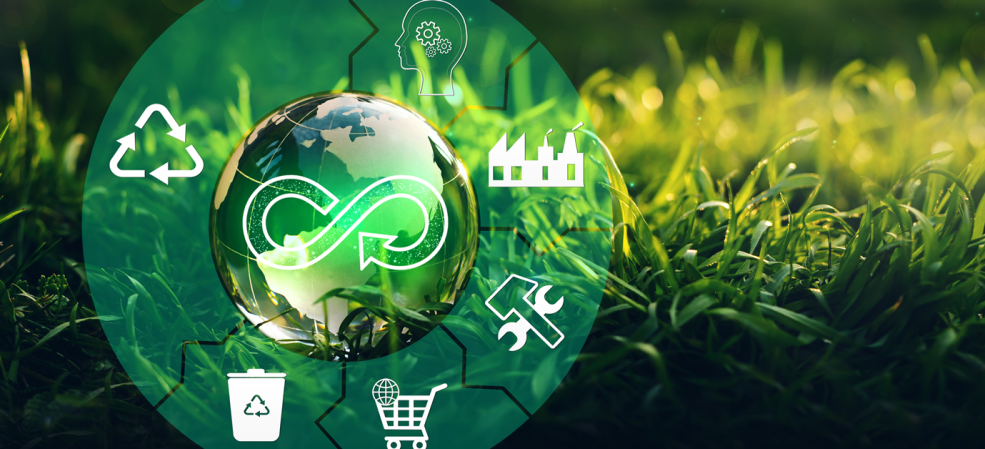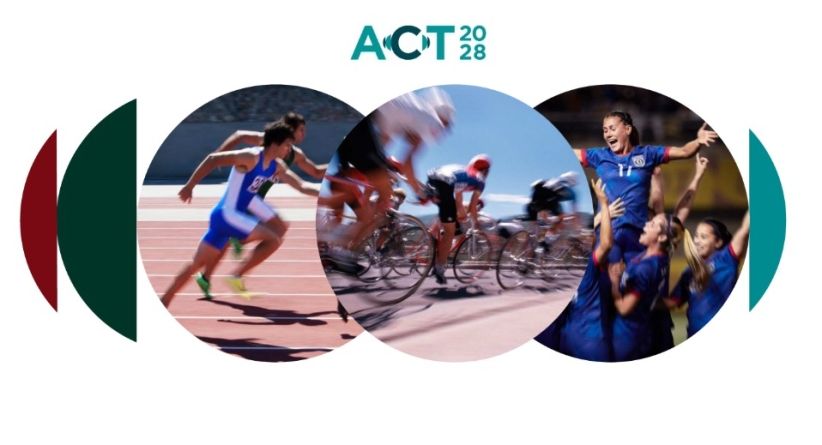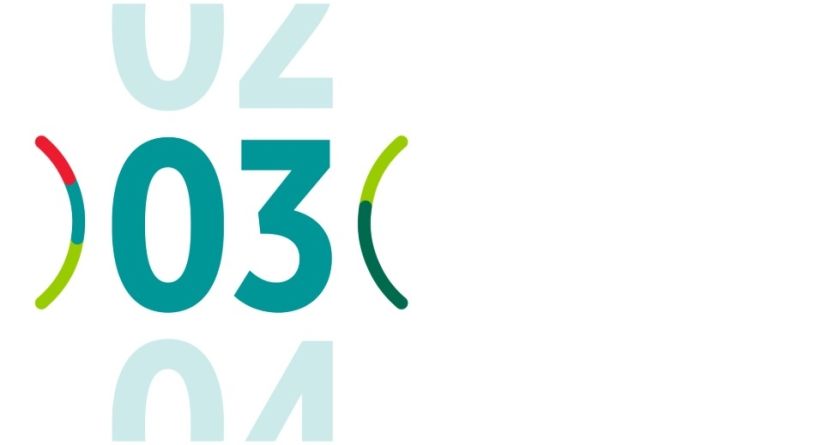
Sustainable Development and the Circular Economy: the role of the AGEC Law
France, like many countries in the world, has for many years been following a linear economic model, which involves extraction, manufacture, consumption and then disposal. Unfortunately, the consequences of these practices are disastrous: the depletion of the planet’s resources, waste that nature cannot deal with, pollution, etc.
Awareness therefore needs to be raised at all levels. The current economic model needs to be overhauled to move from a linear to a circular system, like we see in nature where the waste produced by a species becomes the food of another species. Thus, all waste must be recycled into raw materials or as a source of energy.
Switch from “extraction, manufacture, consumption and then disposal” to “manufacture, consumption, recycling / reuse”.
Focus on the circular economy, or Drawing inspiration from a natural ecosystem
It is based on 7 pillars:
- Sustainable sourcing: with a more efficient use of resources, extracting the full potential of each resource used, to limit the environmental impact.
- Eco-design: this involves planning, at the time a product is manufactured, what will happen to products after they are used - repairing them, dismantling them to reuse parts, etc. and also, upstream, using recycled raw materials.
- Industrial ecology: this involves recovering waste from a product’s manufacturing processes; waste from one sector may become the raw material for another sector.
- Economy of functionality: means prioritising use over ownership by offering rental services, for example, instead of purchasing.
- Responsible consumption: means, for consumers, favouring goods and services that have a low environmental impact.
- Longer usage period: this involves reuse, repair or repurposing.
- Collection and Recycling: these allow raw materials to be resued by reintroducing them into the production chain.
The AGEC Law
To this end, the law on reducing waste in favour a circular economy - the AGEC Law - was enacted on 10 February 2020. This law is divided into five main sections: banning disposable plastic, providing better information to consumers, tackling waste and promoting socially responsible re-use, taking action against scheduled obsolescence and improving production.
Banning disposable plastic
With the phasing out of all single-use plastic packaging by 2024 (by selling more bulk products in stores, and removing disposable plastic items and packaging).
Providing better information to consumers
- By making sorting more efficient by introducing a single logo - Triman - indicating that the product can be sorted, but also with simplified and harmonised sorting instructions, identical for all.
- By providing better waste management information and raising awareness among people living in co-ownership arrangements. The co-owners will therefore need access to local information on sorting rules, the address of the household waste centre, the opening hours, etc.
- By informing consumers about the equivalent greenhouse gas emissions of their Internet and mobile usage.
- By providing information on the statutory warranty in respect of product conformation and the warranty period.
Tackling waste and promoting socially responsible re-use
A number of measures have been introduced to tackle waste, with different deadlines.
- Ban on the destruction of unsold food
- Since 1 January 2022, there has been a ban on destroying unsold non-food products (healthcare products, books, maintenance products, clothing, household equipment, etc.) in order to encourage - as a priority - donations, but also reuse and recycling. For other products, the deadline is 31 December 2023.
- Creation of funds dedicated to financing re-use. The funds are earmarked for entities working in these areas - such as repairers - and financed through contributions from sectors that manufacture electrical and electronic products.
- Authorisation to sell drugs by the unit if their form so permits.
- From January 2023: the routine printing of shop receipts, credit card receipts and ATM receipts, etc. will end.
- There will be a requirement, for orders placed by local authorities and groups of local authorities, to purchase goods that have been repurposed or that contain recycled materials.
Taking action against scheduled obsolescence
Scheduled obsolescence is where a company deliberately reduces the lifespan of a product in order to encourage consumers to renew that product more frequently. What action should be taken?
- In 2021, the law introduced a repairability index (on a scale up to 10) to show whether a product is repairable, difficult to repair or not repairable.
- Introduction of a sustainability index.
- Facilitate the repair and use of spare parts from the circular economy.
- Tackling the obsolescence of software and improve information on maintaining software compatibility (telephones and tablets).
Improving production
- Creation of new “polluter pays” sectors based on the Extended Producer Responsibility (ERP) principle (see below).
- Eco-modulation: the creation in 2021 of a system based on incentives and penalties that seeks to encourage the use of products that are more environmentally friendly and enable consumers to buy eco-responsible products.
A more in-depth look at the Extended Producer Responsibility principle
The Extended Producer Responsibility (ERP) principle introduced by law in 1975 means that the polluter pays, i.e. the manufacturer or distributor of a product that generates waste is responsible for dealing with its waste at the end of its life.
It may deal with the waste itself or agree a joint structure for the sector in question (depending on the category of the product) to meet these obligations, by using non-profit eco-organisations approved by the public authorities. Hence the importance of eco-design from the outset, in order to limit these costs.
It should also be noted that, as a result of the AGEC law:
- The obligation to take back products at no cost (removal of household appliances, provision of battery disposal bins, light bulbs, etc.) has been strengthened.
- The scope of sectors that fall under the ERP has been extended, including the number of operators affected. The ERP principle now applies to any person who develops, manufactures, handles, sells or imports, including, since 2022, e-commerce platforms.
- Increased operationality: establishment of an eco-organisation that producers are obliged to join.
- More transparency (committees, control, monitoring, observation, etc.).
Sectors
In 2022, ERP obligations were extended to new sectors: building products and materials for the construction sector, toys, sports and leisure items, DIY and gardening items, and mineral and synthetic lubricating or industrial oils.
A total of 26 sectors will fall within the scope of the AGEC law by 2025.







